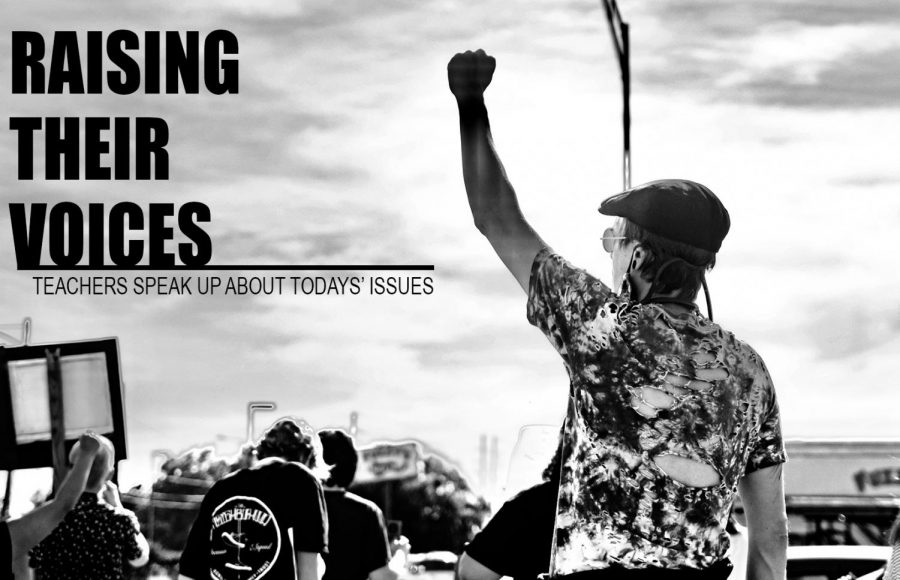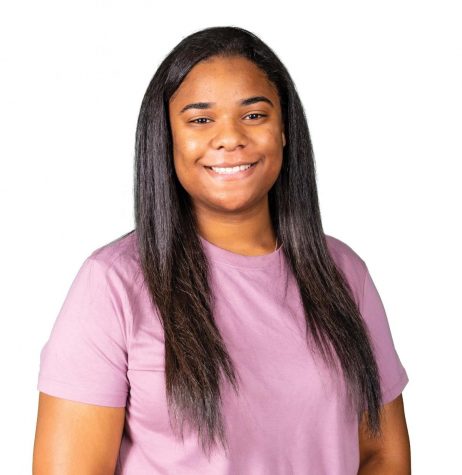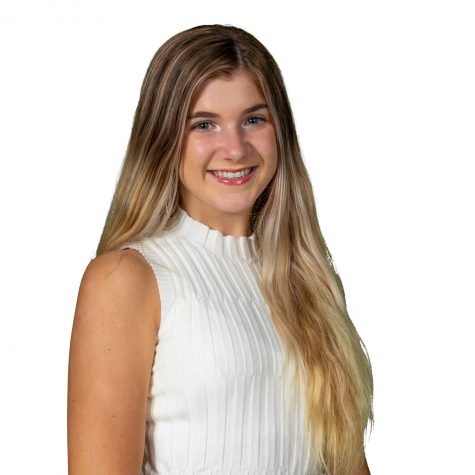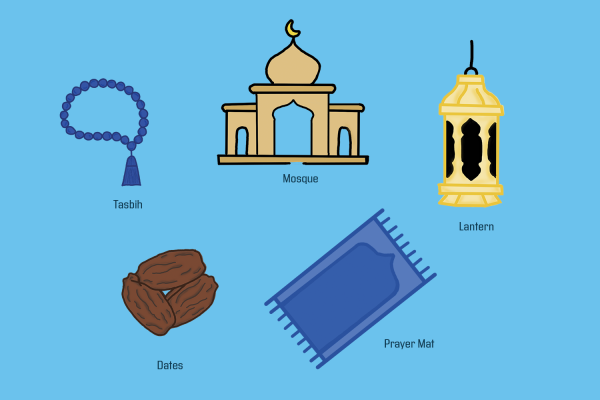Raising their voices
In today’s age of activism, teachers share their own stances on some debated issues.
February 10, 2021
As the Black Lives Matter movement and the recent presidential election are some of our nation’s biggest focal points at the moment, many people take a look at our country’s current state and find themselves plagued with fear for what has happened and continues to plague our nation. With today’s social standards, many people find it hard to be able to speak their opinion without the constant fear of repercussions. However, there are still some teachers willing to speak about it.
Kelsey Rankin
Kelsey Rankin is an English teacher that feels strongly about the nation’s politics and doing what is best for everyone, not just one race. In the better interest of her students, she mainly keeps all opinions to herself, yet she admits that she finds it very difficult to do at some moments.
How do you feel about our nation’s condition right now?
I feel like we are more divided than ever, but I think that some progress on awareness from white people has been made. I think that people of color have always known that these problems exist and why people are waking up to these problems.
What is your stance on the Black Lives Matter movement?
I’m pro Black Lives Matter. I think that it’s a movement that has needed to take place to get young people more involved and aware. We had civil rights movements in the ‘60s and then kind of a gap in big public awareness [campaigns], so I think that it’s a good thing.
How do you keep yourself from joining in those types of conversations and giving your personal opinions? How do you keep it neutral?
I don’t always succeed in that because I want students from all backgrounds to understand who I am, and that I see myself as a white person that’s trying hard to make a difference and to bridge some gaps. I want kids to see that about me, but it’s difficult to know where the line is.
The line could be different based on the kids in our classes. I speak differently about it with juniors than I do with my freshmen, because they can understand that you can be pro Black Lives Matter, but you could also be conservative and pro Black Lives Matter. It’s all a spectrum. I hope to communicate it that way to them.
Chuck Zach
History teacher Chuck Zach has always made sure to never sway students’ opinions with his own personal views, but lead them in the direction that they feel is right with facts.
What do you think about America’s current politicians??
For the most part, we’ve continued this pattern; we pick an old white guy who tops each ticket. I think that this may be the last time we see this. That’s probably refreshing.
I think I’m more disappointed that we can’t seem to get away from the thought that that’s the best we can do is two guys in their 70s who are white. I think we’re moving away from that. I’m disappointed that we didn’t or haven’t found candidates who have enough appeal to be able to get elected that don’t look like they look.
Why do you think that people such as supporters of former President Trump are so against the Black Lives Matter movement?
I think that they feel like it’s diminishing their power and giving it to somebody else makes them weaker. If the crux of Black Lives Matter is police brutality, then I think what you’re going to see is the majority of Trump supporters and conservative Republicans who don’t have issues with law enforcement. They don’t have to worry about being stopped. They don’t have to worry about being brutalized by the police. They’re probably not in neighborhoods where the police feel unsafe when they stop a car, so they don’t really get it.
In their minds, if you weren’t committing a crime, or you weren’t accused of committing a crime, then you wouldn’t have a problem with the police. It kind of got turned back around on. “It’s your fault. It’s not the policeman’s fault.” They have no experience living that life where, because of the way they look, they’re automatically a suspect.
As a result, they’re automatically treated differently. Whether it’s police brutality is just different. Now it escalates to becoming police brutality, but it’s different. On one hand, you’ve got a sense that if we listen to the demands of Black Lives Matter, that we are neutering the police department and that we are giving more emphasis to the people who may have committed a crime than we are to the people who are trying to uphold the law.
Do you feel that history is repeating itself?
I don’t know if it’s repeating. I think it’s a continuation. I don’t think that this desire to get more rights stopped in 1968 and picked up all the sudden again in 2018. I don’t think that’s accurate, but I do think it’s been a continuation. Do I think it’s a louder continuation today than it was maybe ten years ago? Probably.



















